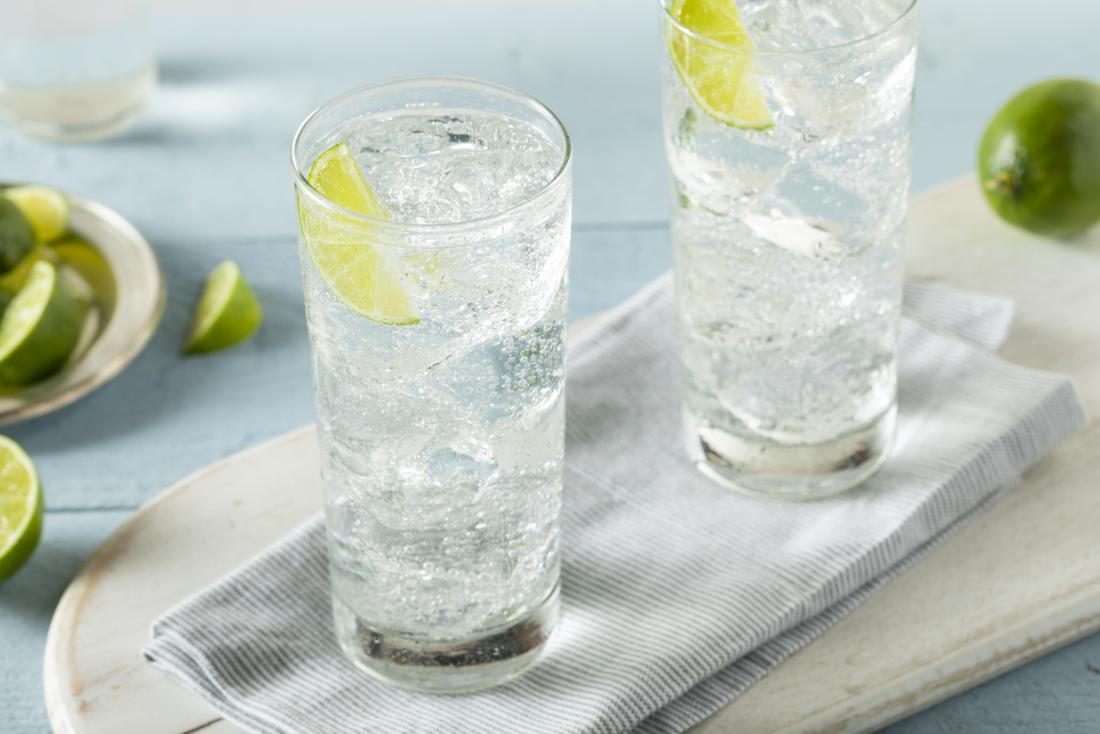Tonic Water’s Health Benefits: Myth or Reality?

With its distinctive bitter taste and enthusiasm, Tonic water has long been a staple in classic cocktails like the Gin and Tonic. Thanks to its quinine content and other botanical ingredients, it’s also gained a reputation as a potential remedy for various health issues. But are the health benefits of tonic water a myth, or do they have a basis in reality? This article explores tonic water’s history, composition, and potential health benefits to determine whether it’s a true elixir or a pleasant beverage.
The History of Tonic Water
To understand the health claims associated with tonic water, it’s essential to delve into its origins. Tonic water was initially created as a medicinal remedy in the 17th century. The key ingredient responsible for its early therapeutic reputation was quinine, extracted from the bark of the cinchona tree. Quinine was used to treat and prevent malaria, a devastating disease transmitted by mosquitoes.
The British colonists in India were among the first to discover the potential of quinine, as they encountered the bitter-tasting cinchona bark and started using it to make a tonic to ward off malaria. This tonic was mixed with water and sugar to make it more palatable, giving rise to what we now know as tonic water.
Quinine and Malaria
The association between quinine and malaria treatment is well-documented. Quinine is effective in treating malaria because it interferes with the parasite’s ability to multiply in the human body. It was a crucial development in the fight against the disease and played a significant role in allowing Europeans to colonize tropical regions where malaria was rampant.
However, it’s important to note that the quinine content in modern commercial tonic water is significantly lower than what was used historically for malaria treatment. Today, it’s included more for flavour than its original medicinal purpose.
Tonic Water Ingredients
Modern tonic water comprises several key ingredients, including carbonated water, sweeteners, acid (usually citric acid), and botanical extracts. Quinine is the most notable botanical extract, which gives tonic water its characteristic bitter taste. Quinine is still present in tonic water but in much smaller quantities than in its historical medicinal formulations.
Other botanicals and flavourings, such as juniper, lemon, lime, and various herbs, are often added to enhance the taste and aroma of tonic water. The specific ingredients can vary among brands, leading to different flavour profiles.
The Myth of Tonic Water as a Health Elixir
Over the years, tonic water has been touted as a remedy for various health issues, including leg cramps, restless legs syndrome, and even arthritis. These claims are often attributed to the quinine content in tonic water.
- Leg Cramps and Restless Legs Syndrome: Some people believe that drinking tonic water can alleviate leg cramps and restless legs syndrome due to the quinine it contains. However, scientific evidence supporting this claim is limited, and the amount of quinine in commercial tonic water should be higher to have a significant effect.
- Arthritis: Another myth suggests tonic water can relieve arthritis symptoms, primarily because of quinine. However, there is no substantial scientific evidence to support this assertion.
- Malaria Prevention: While quinine in tonic water is historically associated with malaria prevention, it’s important to emphasize that the quinine content in commercial tonic water is insufficient for this purpose. Malaria prevention and treatment require much higher doses of quinine, which should only be administered under medical supervision.
The Reality of Tonic Water’s Health Benefits
While the health claims surrounding tonic water may be primarily based on myth and folklore, there are some aspects where it does offer potential benefits:
- Hydration: Like other non-alcoholic beverages, Tonic water can help with hydration. Staying adequately hydrated is essential for overall health, supporting various bodily functions.
- Antioxidant Properties: Tonic water often contains botanical extracts that may have antioxidant properties. Antioxidants help protect cells from damage caused by free radicals, potentially reducing the risk of chronic diseases.
- Low-Calorie Option: Tonic water is generally lower in calories than sugary soft drinks and fruit juices. Choosing a diet tonic water can further reduce calorie intake.
- Mixer for Healthier Cocktails: Tonic water can be used as a mixer in cocktails, and when combined with moderate amounts of alcohol, it can be a lower-calorie and lower-sugar alternative to many other mixers.
Conclusion
In the quest to determine whether the health benefits of tonic water are a myth or reality, it’s clear that tonic water should not be considered a magical elixir for treating specific health conditions. The historical use of quinine in malaria prevention was based on much higher doses than in modern commercial tonic water.
However, tonic water can still have its place as a refreshing and low-calorie beverage option. It offers hydration and may provide some antioxidant benefits due to its botanical extracts. When enjoyed in moderation, especially as a cocktail mixer, tonic water can be a flavorful and enjoyable choice.
While tonic water may not cure health ailments, it can be part of a balanced and varied diet, offering taste and refreshment.




